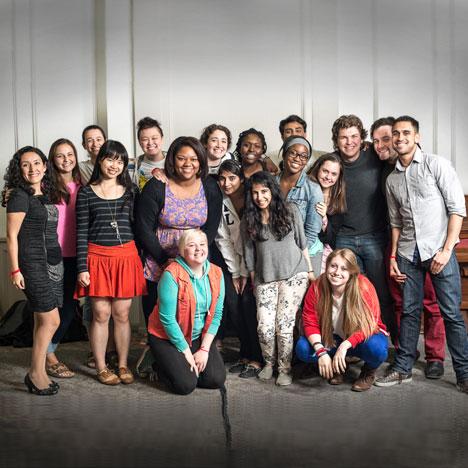Do your students have a burning desire to take on the injustices in the world and seek to meld activist pursuits with a university degree? If so, they are in the right place!
The University of Michigan has a long history of supporting student activism. There are Student Life programs that stem from or are the result of U-M’s social justice heritage that offers incredible educational opportunities to students. Highlighted here are a few of them.
The Program on Intergroup Relations (IGR) was founded in 1988, at a time of heightened racial and ethnic tensions, as a means for understanding intergroup conflict fostering positive intergroup relations at U-M. IGR is the first program in the nation on intergroup dialogue in higher education and to this day continues to be the leader in the expanding field. In collaboration with the College of Literature, Science, and the Arts, IGR offers:
- A minor that prepares students to work in increasingly diverse career settings
- An educational environment that is reflective of the world they are about to enter
- Co-curricular and curricular facilitation opportunities for students
Spectrum Center, founded in 1971, was the first center for the gay and lesbian communities on any college campus. Since then, educational institutions across the United States have adopted this model supporting sexual minorities. By the 1990s-2000s, Spectrum Center again led the nation by expanding representation to the lived experiences of transgender and non-binary individuals on campus. At Spectrum Center, LGBTQ+ students and allies will find opportunities to:
- Further inclusive policies on campus
- Find and build community support
- Access resources at the intersection of gender and sexuality
- Join a thriving network of professionals
Multi-Ethnic Student Affairs (MESA) stems from the legacy of student activism originating from BAM's (Black Action Movement) class boycott in 1970. The primary goal of MESA is to advocate for the needs of minoritized students and promote the cultural diversity that is present yet under-represented. While working through the lens of race and ethnicity, MESA's staff tirelessly advocate for inclusive student access to resources and opportunities, including:
- A wide-range of programmatic engagement and outreach possibilities that support student organizations and individuals in their social justice pursuits
- Professional mentorship and guidance in organizing and running student organizations
Today, many students seek out IGR, Spectrum Center, and MESA amongst other units for social justice education. These units continue to lead the nation in shaping the social justice landscape for students in higher education. At U-M, you will find safe and educational social justice resources for your student. Additionally, students can develop valuable skills through their social justice education that are increasingly sought after in the job market.
To help Student Life continue making a difference in students' lives, please consider making a gift.

